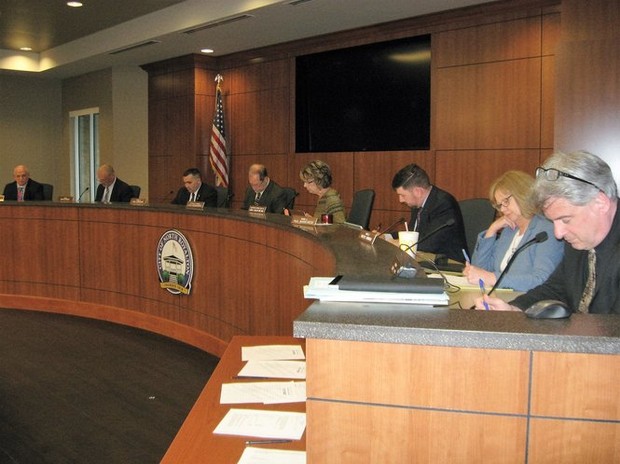BROADVIEW HEIGHTS, Ohio – The city has extended by one year a moratorium on the growing, processing and selling of medical marijuana.
Meanwhile, Strongsville and North Royalton on Tuesday introduced ordinances that would permanently ban marijuana growing, processing and selling. Brecksville will let voters decide the issue in November.
State regulators have set a November target date for awarding medical-marijuana-cultivation licenses. In June, the Ohio Department of Commerce received 185 applications for 24 cultivator licenses throughout the state. However, the commerce department didn’t say in which communities applicants would operate.
Ohio House Bill 523, which allows patients to use medical marijuana prescribed by doctors, authorizes municipal governments to restrict locations where marijuana is cultivated, processed and sold, or even ban the growing and sale of marijuana altogether. Municipalities cannot stop patients from using medical marijuana, though.
Broadview Heights, like other Ohio communities, established a medical-marijuana moratorium in August 2016. The idea was to give city officials time to study the new medical-marijuana law.
At the time, Councilman Glen Goodwin said he didn’t believe Broadview Heights residents wanted marijuana cultivators to set up shop in the city. However, he said council chose to “move cautiously” before enacting legislation.
Last week, City Council extended the one-year moratorium by another 12 months as the state continues to roll out the medical-marijuana program.
Councilman Joe Price said he and Mayor Sam Alai recently attended a meeting between the Northeast Ohio Mayors and City Managers Association and the Ohio Medical Marijuana Advisory Committee, which is helping the state write rules and regulations for the medical-marijuana program.
“(The committee) decided that if some communities have moratoriums in place, even if they had lifted the moratoriums, they won’t consider any applicant from that community, because they don’t want the controversy,” Price said.
Highway 82 Revisited
Last year, Strongsville, North Royalton and Brecksville also established medical-marijuana moratoriums, although theirs was only for six months initially, then subsequently renewed.
In September 2016, Strongsville Councilman Joe DeMio expressed concern that HB 523 might contradict federal law, which calls marijuana an illegal drug.
On Tuesday night, Strongsville City Council unveiled legislation that would permanently ban the cultivation, processing and retail dispensing of marijuana for medical purposes.
The legislation, reflecting DeMio’s thoughts, says federal law still prohibits the manufacturing, distribution, dispensation and possession of marijuana. That means banks and credit card companies can’t loan to such operations, which as a result would have to carry a large amount of cash. Large cash supplies would lead to more crime, the legislation states.
Also on Tuesday, North Royalton City Council introduced its own permanent medical-marijuana ban, although the ordinance wasn’t as detailed as Strongsville’s. North Royalton’s legislation does say that if Congress ever legalizes medical marijuana, council would review the ban.
Strongsville Law Director Neal Jamison and North Royalton Mayor Robert Stefanik said their city councils were expected to place the proposed marijuana bans on first reading Tuesday night.
In Brecksville, council in May placed the issue on the November ballot. Voters will decide whether to ban the cultivation and selling of medical marijuana in all zoning districts.
The proposed medical-marijuana ban in Brecksville must go to voters because it would amend the city’s zoning code. In Brecksville, voters decide all zoning issues.
For passage, the proposed ordinance would need 55 percent of the vote, as required by Brecksville’s charter.
credit:cleveland.com


